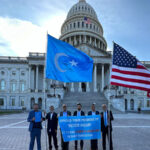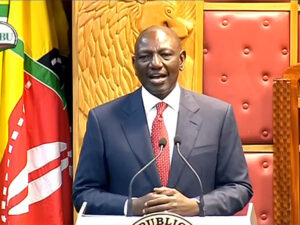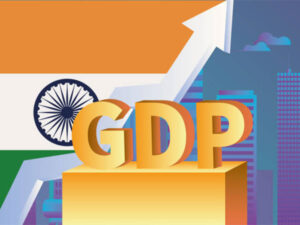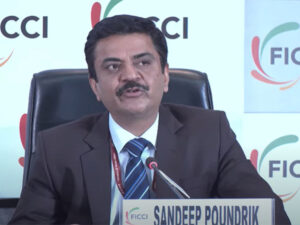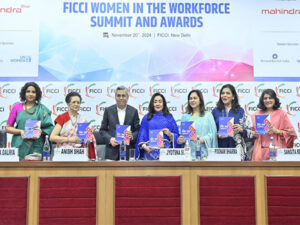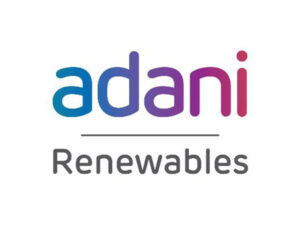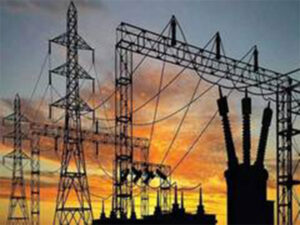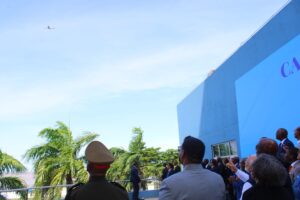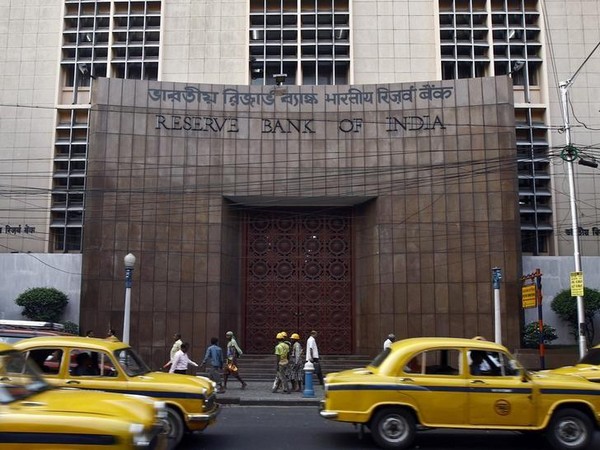
Commuters travel past a Reserve Bank of India (RBI) building in Kolkata November 11, 2014. REUTERS/Rupak De Chowdhuri/Files
Mumbai (Maharashtra) [India], June 22 (ANI): The Reserve Bank of India (RBI) Monetary Policy Committee decided to hike the policy repo rate by 50 basis points earlier this month in order to prevent inflation from corroding economic recovery, as per the minutes of the MPC meeting released on Wednesday.
In the Monetary Policy Committee (MPC) meeting held during June 6-8, RBI Deputy Governor Michael Debabrata Patra, noted, “If this inflation is allowed to go out of hand, it could corrode the foundations of the recovery that is gradually gaining traction – empirical evidence shows that inflation above 6 per cent in India is unambiguously harmful for growth.”
Patra further added that inflation would deter investment decisions because businesses will worry about demand for their products getting postponed at these elevated levels of prices; and cause depositors to worry about negative returns to their deposits and hence shift to time-tested holders of value like gold which translates to capital flight in the case of India – the world’s second-largest importer of the yellow metal produces only 1 per cent of consumption domestically.
Patra also noted that inflation would cause exchange rate depreciation which will increase imported inflation, discourage capital inflows and trigger large capital outflows. The thirty-sixth meeting of the Monetary Policy Committee (MPC), constituted under section 45ZB of the Reserve Bank of India Act, 1934, was held from June 6 to 8, 2022.
The meeting was attended by all the members – Shashanka Bhide, Honorary Senior Advisor, National Council of Applied Economic Research, Delhi; Ashima Goyal, Emeritus Professor, Indira Gandhi Institute of Development Research, Mumbai; Jayanth R. Varma, Professor, Indian Institute of Management, Ahmedabad; Rajiv Ranjan, Executive Director (the officer of the Reserve Bank nominated by the Central Board under Section 45ZB(2)(c) of the Reserve Bank of India Act, 1934); Michael Debabrata Patra, RBI Deputy Governor in charge of monetary policy. The meeting was chaired by RBI Governor Shaktikanta Das.
The MPC reviewed the surveys conducted by the Reserve Bank to gauge consumer confidence, households’ inflation expectations, corporate sector performance, credit conditions, the outlook for the industrial, services and infrastructure sectors, and the projections of professional forecasters. The MPC also reviewed in detail the staff’s macroeconomic projections and alternative scenarios around various risks to the outlook.
On the basis of an assessment of the current and evolving macroeconomic situation, the Monetary Policy Committee decided to increase the policy repo rate under the liquidity adjustment facility (LAF) by 50 basis points to 4.90 per cent with immediate effect. Consequently, the standing deposit facility (SDF) rate stands adjusted to 4.65 per cent and the marginal standing facility (MSF) rate and the Bank Rate to 5.15 per cent.
The MPC also decided to remain focused on the withdrawal of accommodation to ensure that inflation remains within the target going forward, while supporting growth. These decisions are in consonance with the objective of achieving the medium-term target for consumer price index (CPI) inflation of 4 per cent within a band of +/- 2 per cent, while supporting growth, according to minutes of the meeting released by the RBI.
All members of the MPC -Shashanka Bhide, Ashima Goyal, Jayanth R. Varma, Rajiv Ranjan, Michael Debabrata Patra and Shaktikanta Das – unanimously voted to increase the policy repo rate by 50 basis points to 4.90 per cent. All members also unanimously voted to remain focused on withdrawal of accommodation to ensure that inflation remains within the target going forward, while supporting growth.
“While high inflation continues to be the major concern, revival of economic activity remains steady and is gaining traction. The time is appropriate to go for a further increase in the policy rate to effectively deal with inflation and inflation expectations. Accordingly, I vote for a 50 bps increase in the repo rate which would be in line with the evolving inflation-growth dynamics and will help in mitigating the second-round effects of adverse supply shocks,” RBI Governor Das said in his intervention during the meeting. “This action will reinforce our commitment to price stability – our primary mandate and a pre-requisite for sustainable growth over the medium term,” Das added. (ANI)




